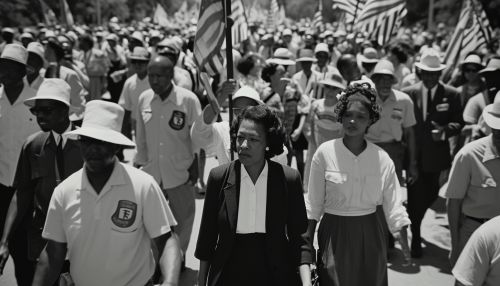Racial Equality
Historical Context
The concept of Racial Equality is deeply rooted in the historical context of human societies. It is a principle that asserts that all people, regardless of their racial or ethnic identities, should be treated equally under the law and have equal access to societal resources and opportunities. The struggle for racial equality has been a significant part of human history, with movements and legislation aimed at dismantling systemic racism and promoting equal rights for all races.


Theoretical Foundations
The theoretical foundations of racial equality stem from various philosophical, sociological, and political theories. These theories, such as Critical Race Theory, Intersectionality, and Social Justice, provide a framework for understanding and addressing racial disparities and discrimination. They argue for the recognition and rectification of systemic and institutionalized racism, and for the promotion of equal rights and opportunities for all racial and ethnic groups.
Legal Frameworks
Legal frameworks play a crucial role in promoting and enforcing racial equality. Anti-discrimination laws, such as the Civil Rights Act in the United States, the Race Relations Act in the United Kingdom, and the Racial Discrimination Act in Australia, prohibit racial discrimination in various aspects of public life, including employment, education, housing, and public services. These laws are essential tools in the fight against systemic racism and racial inequality.
Challenges to Racial Equality
Despite significant progress, numerous challenges to racial equality persist. Systemic racism, racial profiling, and racial disparities in education, healthcare, and criminal justice are among the most pressing issues. These challenges are complex and multifaceted, requiring comprehensive and targeted solutions to address them effectively.
Strategies for Achieving Racial Equality
Achieving racial equality requires a multi-pronged approach that addresses both individual and systemic racism. Strategies include education and awareness-raising, policy and legislative reforms, and community-based initiatives. These strategies aim to challenge and change discriminatory attitudes and behaviors, dismantle systemic racism, and promote equal rights and opportunities for all racial and ethnic groups.
Impact of Racial Equality
The achievement of racial equality has profound social, economic, and political impacts. It contributes to social cohesion, economic prosperity, and political stability by promoting diversity, inclusivity, and justice. Moreover, racial equality is essential for the realization of human rights and the achievement of sustainable development goals.


